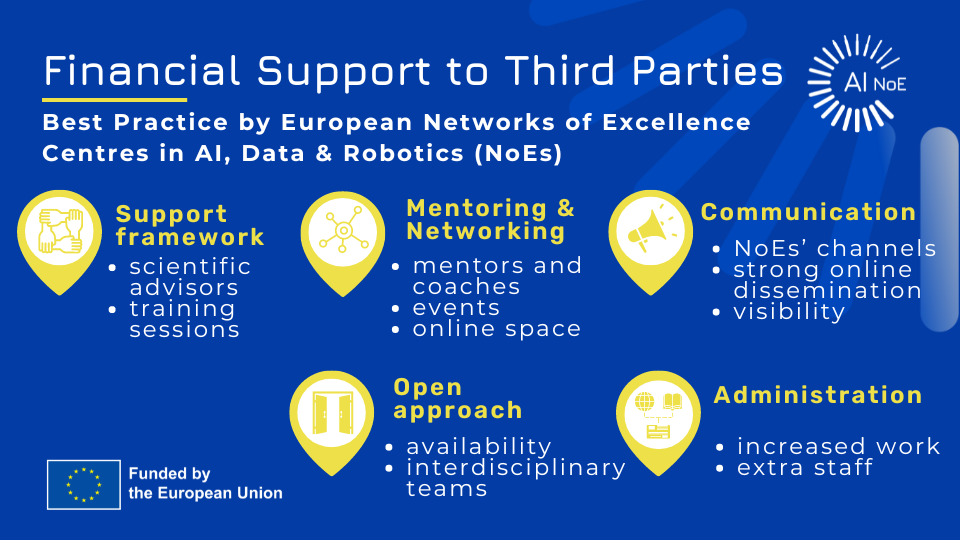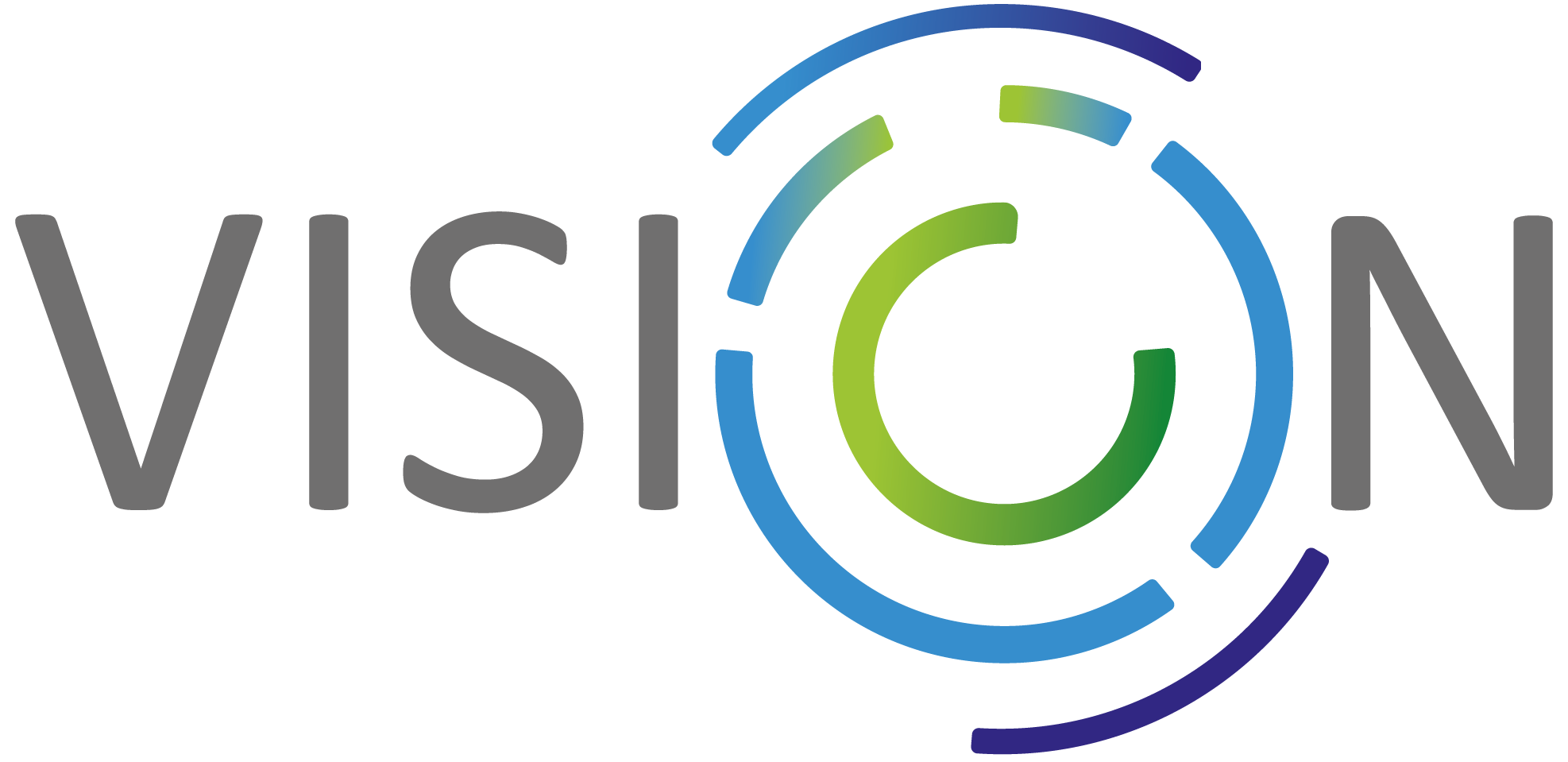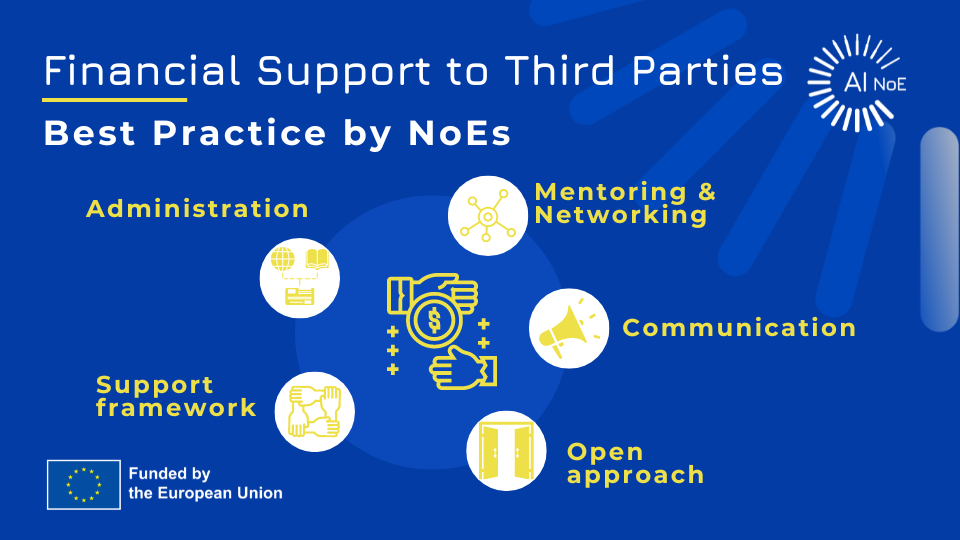Launch of Financial Support to Third Parties Best Practices
The VISION project has prepared a report in which the Best Practices for Financial Support to Third Parties, an instrument used within EU-funded Research & Innovation projects, have been meticulously collected. This report provides essential guidance on optimizing the administration, financial management, and overall execution of FSTP initiatives, drawing on the experiences and lessons learned from ICT-48’s Networks of Excellence (NoEs). By highlighting successful strategies and common challenges, the report aims to enhance the effectiveness of future projects funded under this scheme.
Key takeaways from the report
ICT-48’s NoEs have shared their lessons learned regarding:
- administrative and financial aspects of the FSTP projects. They highlighted the importance of providing funding for participants, which allowed them to invest time in research without excessive pressure.
- The support provided by the NoEs towards mentoring and networking among the funded projects was highly appreciated. The recommendation is to keep on networking throughout the project lifecycle through specific events, social channels, blogs, and websites.
- The importance of having a coach/mentor for each awarded project was also highlighted.
- Mobility funds were found to be useful, effective, and low-cost instruments for European AI researchers, but were not used as often as recommended.
- A well-established support framework has been recommended, ensuring beneficiaries are regularly monitored and aware of their obligations.
- The NoEs discussed the success of various aspects of a project, including the organization of training sessions, the promotion of sub-granted projects, and the role of Scientific Advisors. The role of Scientific Advisors in the project execution was also highlighted, with the recommendation to build a connection between the ecosystem and research activities by adding a Scientific Advisor to the open call. Additionally, they recommended organizing at least one cross-projects event per year and keeping part of the dissemination and communication budget available for these events.
- The open approach to FSTP calls allowed for a wide range of challenges to be addressed, positively impacting the number of applications received by the NoEs. However, the high number of applications required additional personnel resources, which were managed using for instance an Agile management process. Instead, as a comparison, the ICT-49 projects focused on selecting appropriate challenges to avoid limiting potential applicants.
- Working in the same location for successful projects is more feasible for mobility funds and smaller projects, as it allows for better teamwork. The use of interdisciplinary teams for research generates value beyond the funds invested and is crucial for generating concrete results, strengthening ties between stakeholders, and disseminating knowledge.

To learn more, visit the VISION website for an overview of the best practices or download the full report.

